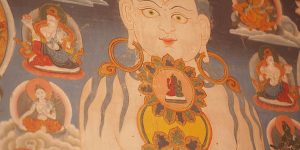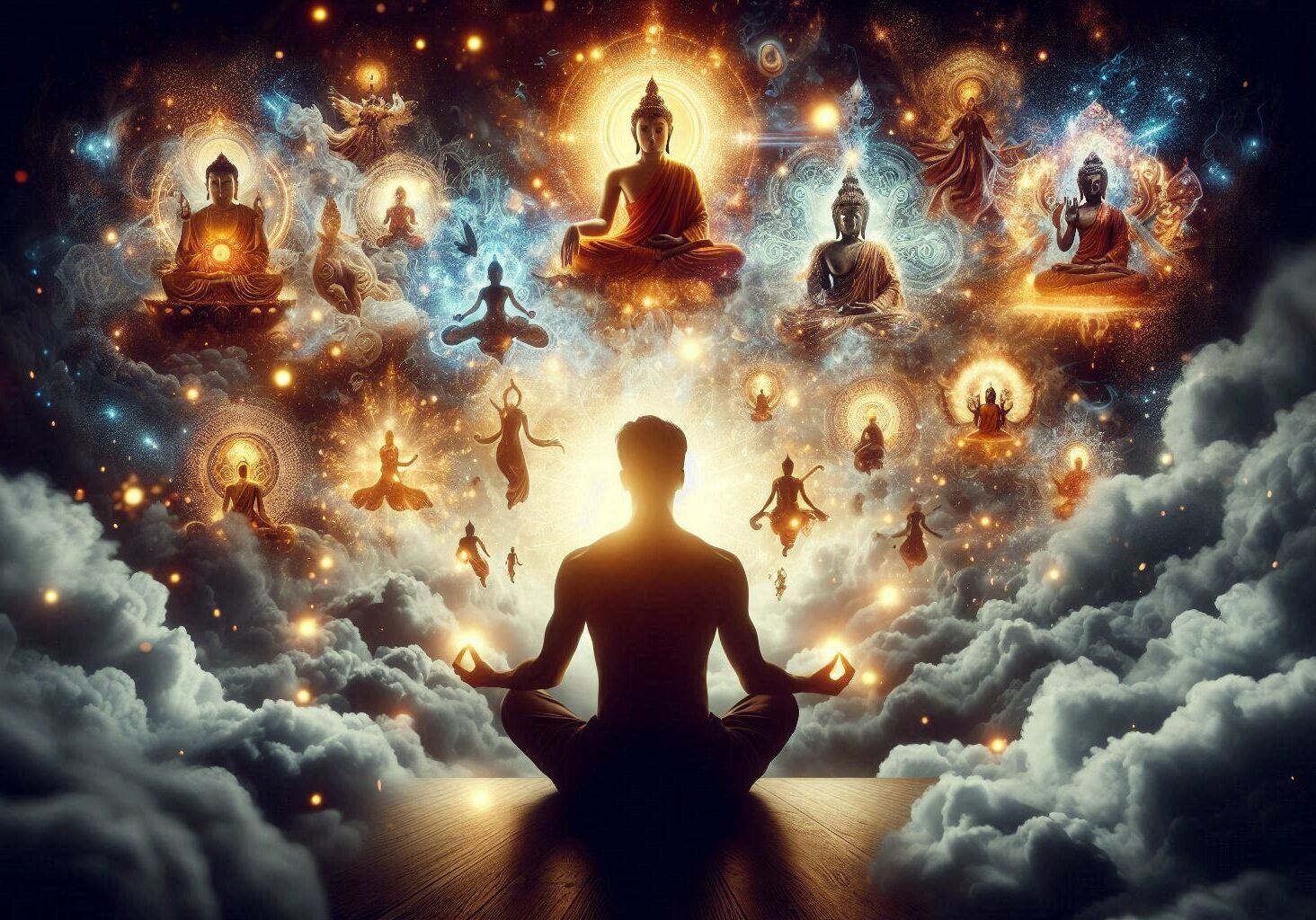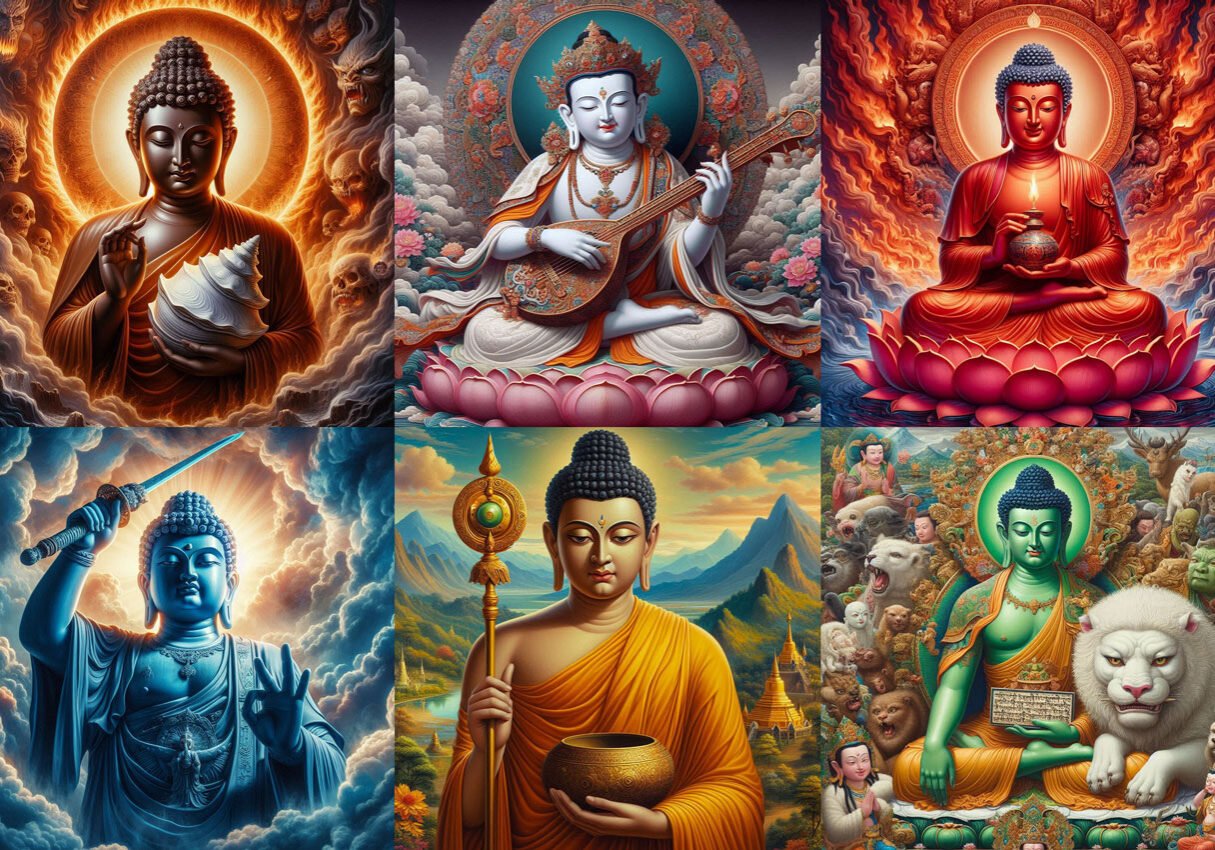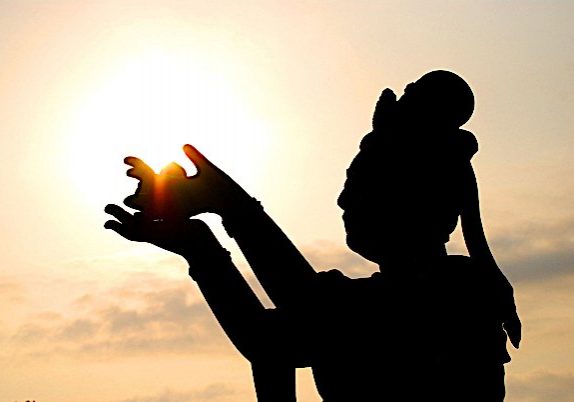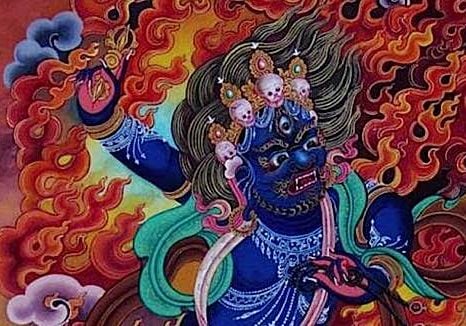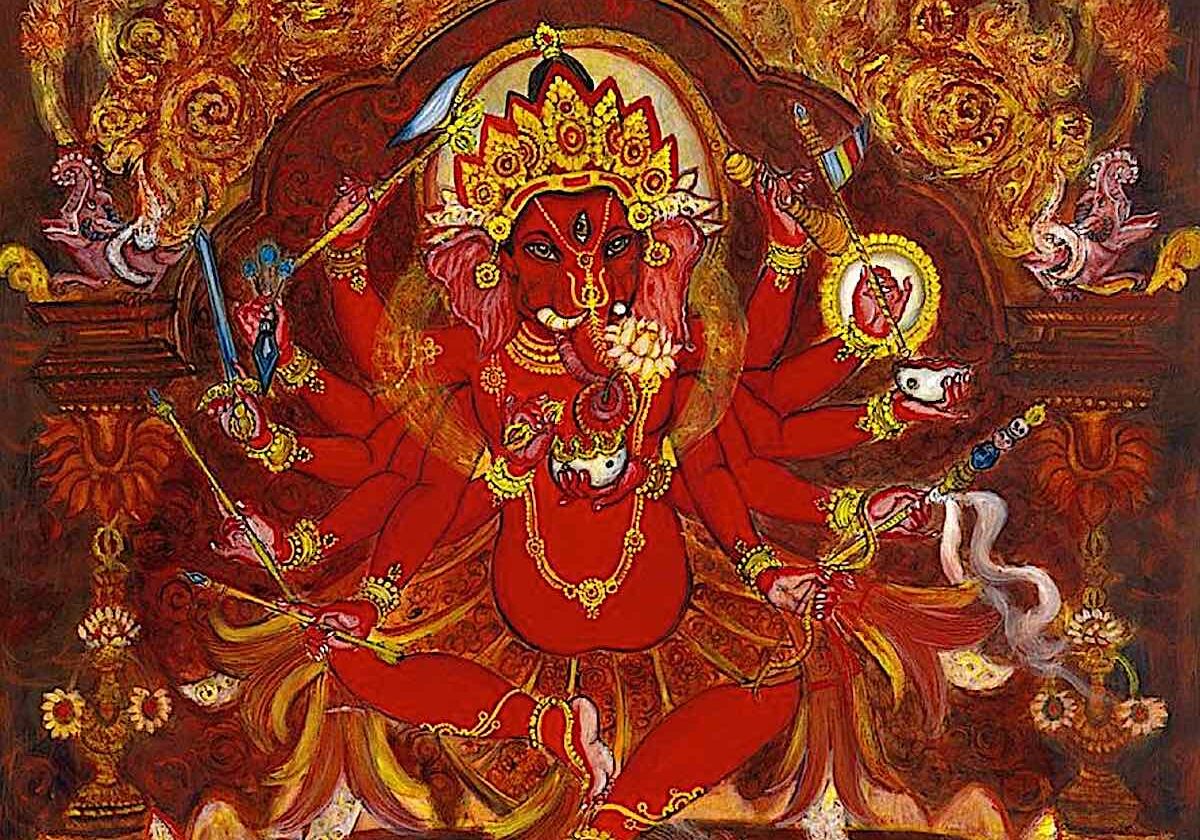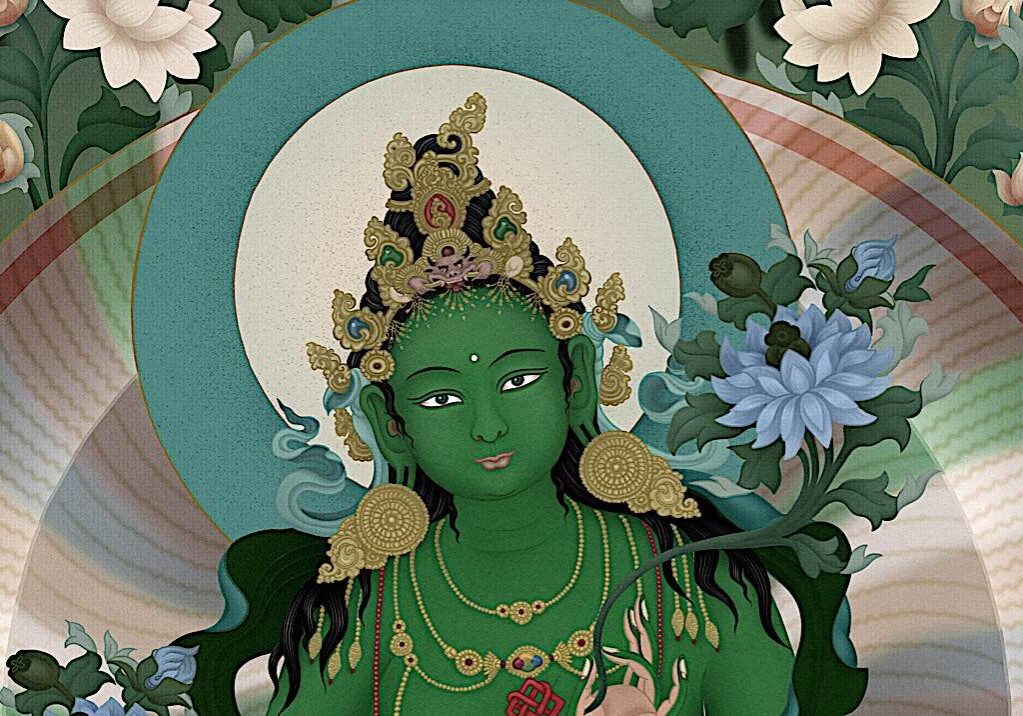Deities

Wrathful Compassion of Hayagriva, the Heruka emanation of Amitabha Buddha — an important Buddhist practice in modern, difficult times.

“Means of Accomplishing”: Sadhanas, the secret sauce recipe of Vajrayana Buddhism — the ingredients that make it effective, and how to embrace its elegant formulas

Chintachakra White Wish-Granting Wheel Tara: The All-in-One Mother of Buddhas in Vajrayana Buddhism – Her Significance, Mantra and Why Her Practice is Essential
Bodhisattvas
/
Buddha
/
Buddhist Practices
/
Dakini
/
Dakini Wisdom
/
Deities
/
Dharma
/
Mahayana
/
Mantra
/
Meditation
/
Tantra
/
Tara

Tara’s Great Dharani Supreme of all Mantras –with Music version– and the Sutra of Tara Who Protects from the Eight Fears: in Tara’s Own Words

Avalokiteshvara’s Renunciation Day! Guan Shi Yin Avalokiteshvara’s 3 Sacred Days Are Birthday, Renunciation and Enlightenment: “Most Widely Beloved Buddhist Divinity”

The First Doctor: Medicine Buddha Bhaisajyaguru Lapis Lazuli Light — Empowering You to Heal; the Buddha of Healing and Medicine and Doctors
Buddha
/
Buddhist Practices
/
Deities
/
Dharma
/
Mahayana
/
Mantra
/
Medicine Buddha
/
Meditation
/
Vajrayana

The 8 Great Bodhisattvas and the 8 Great Qualities of Buddha; 8 Great Mantras and Why We Need These Qualities

Limitless Tara, Beyond the Green: Mother of all the Buddhas, Goddess of Many Colors, Consort of Buddhas, Wisdom Mother, Action Hero…
Bodhisattvas
/
Buddha
/
Dakini
/
Dakini Wisdom
/
Deities
/
Dharma
/
Mahayana
/
Mantra
/
Tara
/
Vajrayana

Guru Rinpoche answers Lady Tsogyal: Should we practice one or many yidams? Is the master or the Yidam more important? Why is it important to practice the yidam deity?
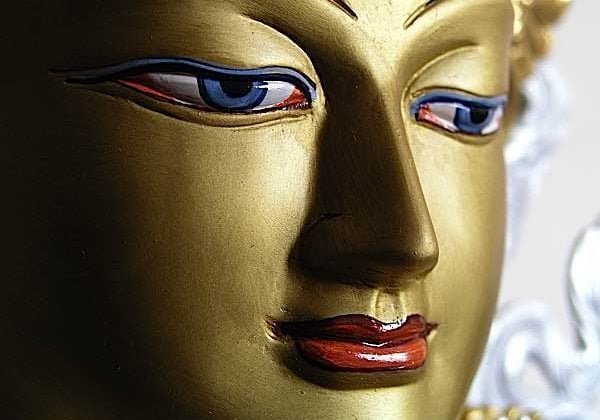
Avalokitesvara compassion practices can “enhance treatment of anxiety, depression, trauma” say some scientists and clinicians. For the rest of us, his compassion brings us closer to bliss and wisdom.

Female Enlightened Manifestations and Female Teachers and Lamas — Wisdom in Action; Reader Poll and Interview with Lama Shannon Young

What are deities? Not other than “the qualities of the fully awakened… latent within us.” Who is Guru? “the pointer to these qualities”

Celebrating Loving Kindness on Maitreya Day: Significance and Traditional Practices to Start the Lunar New Year Celebrating the Buddha-to-Come

Green Jambhala and Wisdom Dakini: The Karma Family Activity of Prosperity, aspects of Tara and Amoghasiddhi Buddha

Stream of Gems Vasudhārā: The Buddhist Tara Goddess of Wealth and Prosperity; Mother Earth Who Witnessed Buddha’s Enlightenment

In what way are Buddhist deities real? What do the teachers and sutras tell us about the true nature of Buddhas and Bodhisattvas.

Vajrayogini, enlightened wisdom queen, leads us to bliss, clear light and emptiness, despite modern obstacles

“Mind Jewel” Green Tara – a Highest Yoga Tantra practice of Chittamani Tara (Cittamani), Mother of all the Buddhas
Bodhisattvas
/
Buddha
/
Deities
/
Mahayana
/
Tantra
/
Tara
/
Vajrayana
/
What the Buddhist Teachers Say

Padmasambhava Guru Rinpoche’s condensed “all teachings into one — which is concise and easy to practice”at the time of death: as requested by Lady Tsogyal
Buddhist Practices
/
Dakini
/
Dakini Wisdom
/
Deities
/
Guru Rinpoche
/
Tantra
/
Teachers
/
Vajrayana

The eleven aspects of Manjushri — kind, wrathful, protective, teaching and “beastly” — white, yellow, black; father, mother, spiritual child
Bodhisattvas
/
Buddha
/
Buddhist Practices
/
Deities
/
Dharma
/
Mahayana
/
Mantra
/
Tantra
/
Vajrayana

Kukkuripa’s Dog and the Sacred Animals in Buddhism — Power Animals of Enlightened Deities and their meaning

Heruka and Dakini’s Special Months: Honoring the Blissful Wisdom Mother in the 11th Month and the Compassionate Hero in the 12th

Mahakala: Miracles of Great Black and the Dalai Lama — three Men in Black, the Mahakala brothers, the Dalai Lama, and a crow

Four heroic incarnations of Ksitigarbha, the “Earth Store” Bodhisattva — unfailing, never-tiring compassion

Long Life Prayer to Amitayus, Padmasambhava, Vajrakumara and White Tara: Chokgyur Lingpa (1829–1870). Translated from the Tibetan by Dzongsar Jamyang Khyentse Rinpoche
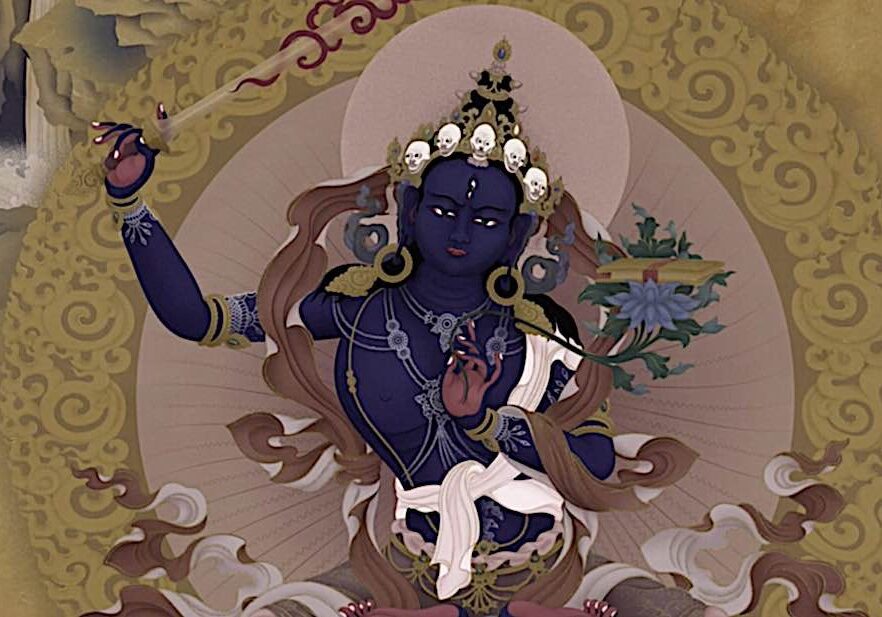
The Disease Specialist: Black Manjushri Practice Has a Reputation for Successfully Helping Victims of the Most Dangerous Diseases

Shabkar’s Song of Practice: the entire path, from refuge to generation to completion in one song by one of the great sages of Tibet

Vajrakilaya: put a peg in it ! — Cutting the three poisons with the sharpest weapon: destroying ignorance, greed, and hostility with profound Vajrakumara

Parnashavari Meditation Experiences — and meeting Hayagriva (What I experienced meditating with Buddha Weekly videos)

Deity Yoga: Science or Superstition? Vajrayana Deity Meditation Proves Invaluable in Preventing Cognitive Disorders. In What Other Ways is Vajrayana Buddhist Deity Practice More Science than Religion?
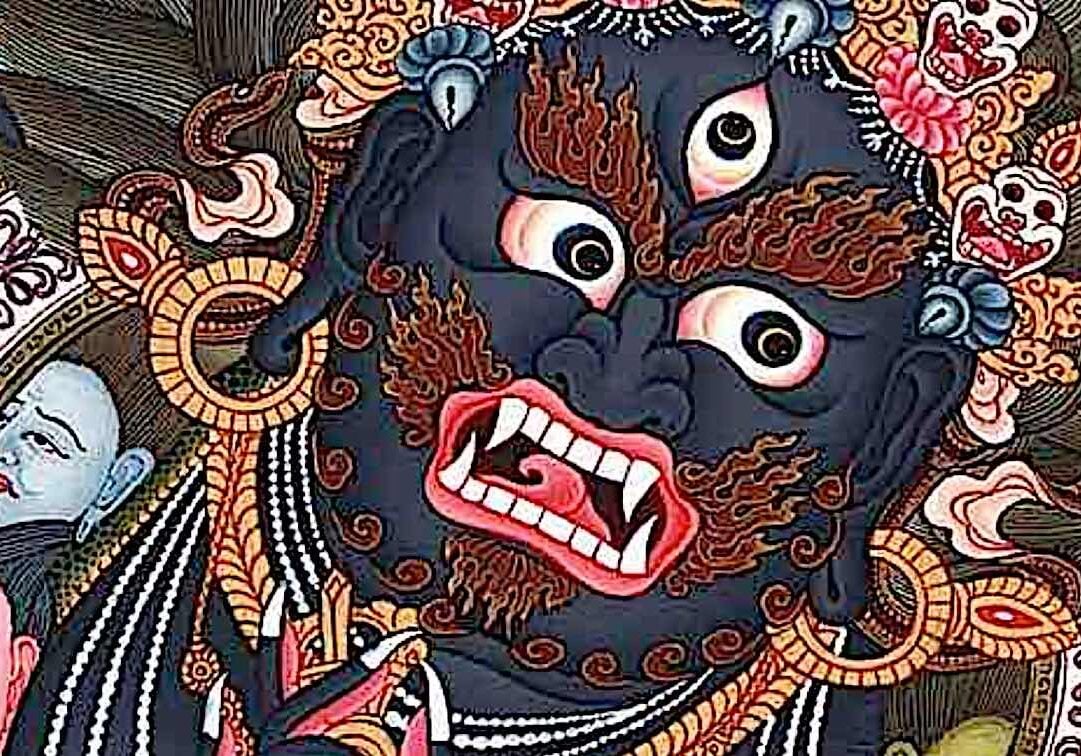
Wrathful Deities: The First Responders in Meditation; the Psychology of Fearsome Enlightened Buddhas
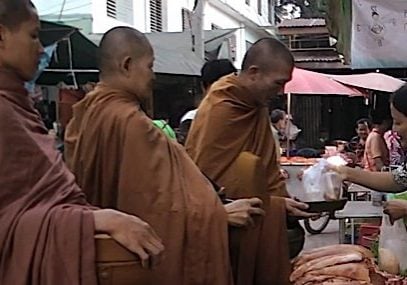
Wealth Deities: Generating Karma for Prosperity by Practicing Generosity. How to Reconcile Renunciation with Wealth Practices in Buddhism.

Mother Tara’s many-armed protective embrace: 21 Taras according to Surya Gupta — with 8 videos and mantras and stunning art

Chenrezig: the many faces of Avalokiteshvara’s compassion — sometimes we need a father or mother, sometimes a friend, sometimes a warrior
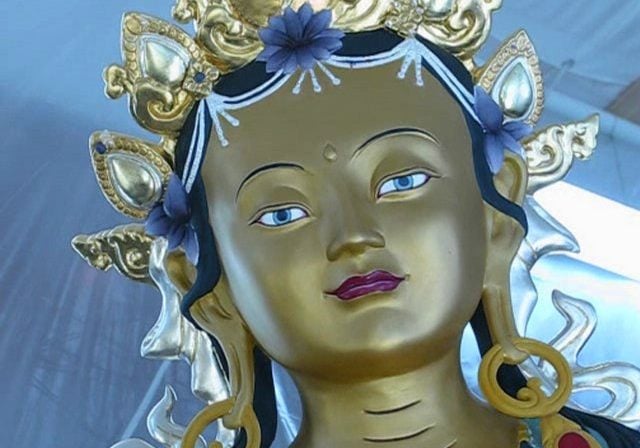
Mama Buddha Tara: Compassionate Action; Stories of Green Tara the Rescuer — How She Can Help You
Bodhisattvas
/
Buddha
/
Buddhist Practices
/
Dakini
/
Dakini Wisdom
/
Deities
/
Mahayana
/
Mantra
/
Tantra
/
Tara
/
Vajrayana

White Tara long life practice video with special 5-colors protection light guided visualization from Venerable Zasep Rinpoche
Buddhist Practices
/
Dakini Wisdom
/
Deities
/
Dharma
/
Tantra
/
Tara
/
Teachers
/
Teaching videos
/
Vajrayana
/
Videos
/
What the Teachers Say
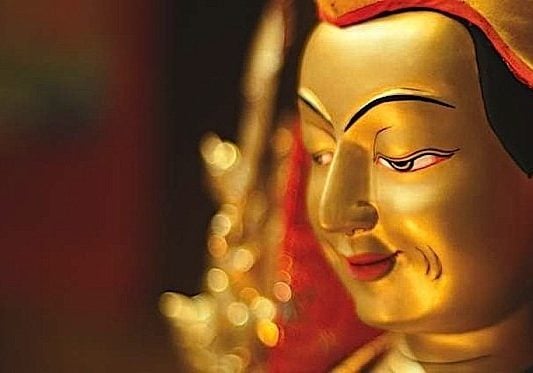
Lama Tsongkhapa: A Short, Powerful Practice Helps Bring Compassion, Wisdom, Good Fortune, and Healing

Video: In Praise of Tara, written and recited by Jason Espada — Praising the Mother of All the Buddhas

Is there room for the supernatural in Western Buddhism? Four sutra views of magic and metaphysical and why a supernatural perspective helps “see beyond ordinary perception”

Part 3: 21 Taras of Mahasidda Suryagupta: after curing him of leprosy, Tara taught him Her Twenty-One forms

Part 2, Surya Gupta 21 Taras: meditating on virtuous body of Tara; distinct embodiments of Tara’s Compassion and Wisdom

The bridge between science and Buddhism, atoms and no atoms, theism and athiesm; Yidam deity meditation and the Cognitive Science of Tantra
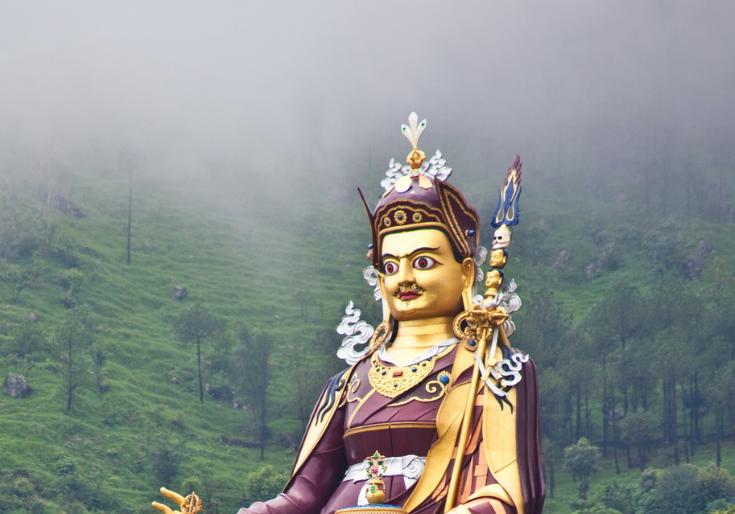
Tantra Helps “Stop Ordinary Perception”, and is the Fast Path to Enlightenment. But How Do Modern Buddhists Relate to Deities?
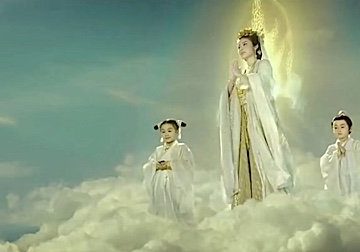
Guan Shi Yin and the ten great protections of the Goddess of Mercy Kuanyin: Avalokiteshvara, Bodhisattva of Compassion

Video Medicine Buddha Retreat, part 1: open self-healing weekend with visualization, mantras and teachings with H.E. Zasep Rinpoche

Twelve syllables of Medicine Buddha’s name represent his twelve great vows: Bhaisajya-guru-vidurya-prabha-raja — recite his Holy name as a mantra

Video: chanting Green Tara by Yoko Dharma; from our guided meditation series, Green Tara images and mantra to empower your practice

Green Tara guided meditation video, guided by H.E. Zasep Rinpoche with beautiful Tara images and animations; finishing with magnificent Tara mantra chanted by Yoko Dharma
Dakini Wisdom
/
Deities
/
Mantra
/
Tantra
/
Tara
/
Teachers
/
Teaching videos
/
Videos
/
What the Teachers Say
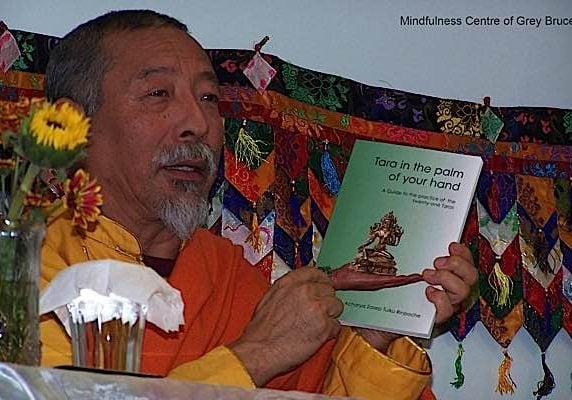
Tara Book excerpt and teaching: Who is Tara and how can She help us? An introduction to Tara, Karma, Shunyata, Dependent Arising, and Buddha Nature by Venerable Zasep Tulku Rinpoche
Buddha
/
Buddhist Practices
/
Dakini Wisdom
/
Deities
/
Dharma
/
Tara
/
Teachers
/
Vajrayana
/
What the Teachers Say
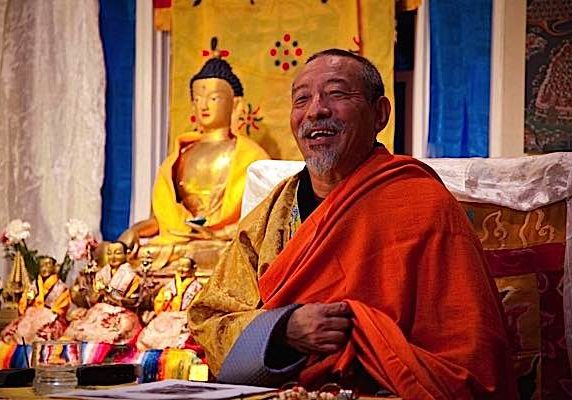
Purifying Negative Karma Advice Video: How to Purify Obstructions and Defilements with Vajrasattva Practice and Other Buddhist Meditations, Answered by Venerable Zasep Tulku Rinpoche



